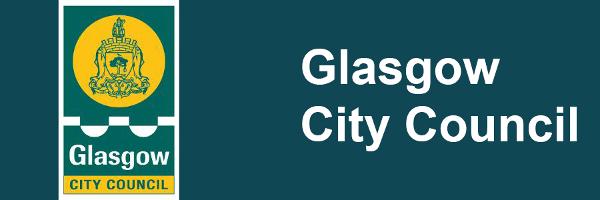Report an out of control dog
This page provides information on the legal requirements of dog owners to keep their animals under control and the sanctions available to authorities in dealing with out-of-control dogs.
Report a Dangerous Dog (opens new window)
Please note that any incidents involving a dog biting attack, any serious injury on a person, or another animal should be referred to Police Scotland for initial investigation. Glasgow City Council will consider other incidents involving a dog being out of control, which gives rise to reasonable alarm or apprehension for the safety of a person or another animal. For further information see below.
Do dogs have to be kept on a lead?
The law says that dogs must be kept under close control but does not state dogs must be kept on a lead. Close control can be described as on a fixed leash, off leash walking to heal, or off leash in direct sight of the owner - with reliable and effective recall. The dog must be able to respond to the owner's command under all circumstances. If you are not sure that your dog can do this, the responsible thing is to keep them on a lead.
'Out of Control'
Any dog, regardless of its breed, can cause fear and alarm, or even serious injury. A dog does not have to attack a person or another animal to be classed as out of control. Your dog is out of control if; you do not keep it under control effectively and consistently and its behaviour causes someone to fear for their own safety or that of another person or animal. The legislation relates to when a dog's behaviour give rise to alarm, or apprehensiveness, which are reasonable in the circumstances.
All incidents involving dog bites on people, serious injury to another animal, or dangerous dogs must be reported to the Police for initial investigation. Where appropriate our Dog Control Officer can provide assistance to the Police in dealing with such incidents, however we will only take referrals directly from the Police. Other types of dog control concerns can be reported directly to our service.
For more information, see below.
Dealing with out-of-control dogs
- Details of where and when the incident took place (date and time).
- Details of the dog(s) owner, - address, and name (if possible).
- Details of dog(s) involved in incident (description, breed if known).
We can only follow up concerns with the dog owner if we are provided with this information. We will require you to complete a more detailed statement regarding the incident. We may also request a statement from the owner of the dog(s) involved.
If there is reasonable evidence from the statements received that the dog(s) has been out of control in terms of the legislation, then we will issue an appropriate warning to the dog owner. This will outline steps the dog owner should take to prevent further incidents.
The responsibility for ensuring the control of any dog remains with the owner at all times.
The Control of Dogs Act (Scotland)
The Control of Dogs (Scotland) Act 2010 is civil legislation which is used to educate, promote awareness, and encourage dog owners to be responsible in their actions, preventing dog related incidents.
The Act focuses on the "Deed not the Breed" (dealing with the problem rather than the particular breed of dog) approach in tackling irresponsible ownership. The key aim is to:
- highlight the responsibilities of owners of "out of control" dogs to deal with problems at an early stage; and
- provide the information and assistance needed to change the behaviour of the dog and the owner before the dog becomes dangerous.
All dog owners have a responsibility to ensure that their dog is under control and does not interfere with other members of the public.
The local authority can issue a warning to the dog owner or take more formal action in serving a Dog Control Notice (DCN). The aim of each is to make the owner aware of the measures which need to be addressed to prevent the dog causing more serious problems in future.
These measures can include (but are not restricted to):
- Muzzling the dog whenever it is in a public place
- Keeping the dog on a lead
- Having male dogs neutered
- Keeping the dog away from specific environment or specified type of environment
- Undertaking training to modify/control the dog's behaviour
- Having the dog microchipped
Please note that issuing a DCN is the last resort that a local authority will use. In all cases we will try and work with dog owners to informally resolve any issues by giving appropriate advice and guidance to them and issuing a warning letter.
Failure to comply with a DCN is a criminal offence and any breaches may be reported to the Procurator Fiscal. The owner may incur a fine of up to £1,000. In addition, the court may make an order to disqualify a person from owning or keeping a dog for a period of time, instruct the Authorised Officer to reissue a new DCN with revised conditions, re-home the dog, or have the dog destroyed.
In the event of the dog being involved in a Police 'dangerous dog' investigation, the existence of a warning letter or Dog Control Notice may be taken into account by the courts.
Report an out of Control Dog
You can report an out of control dog by using our online form.




